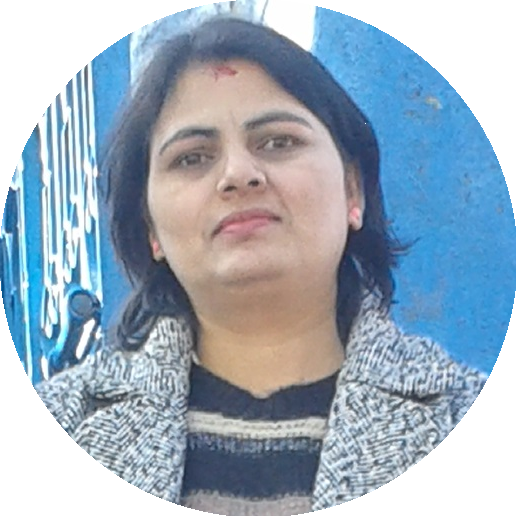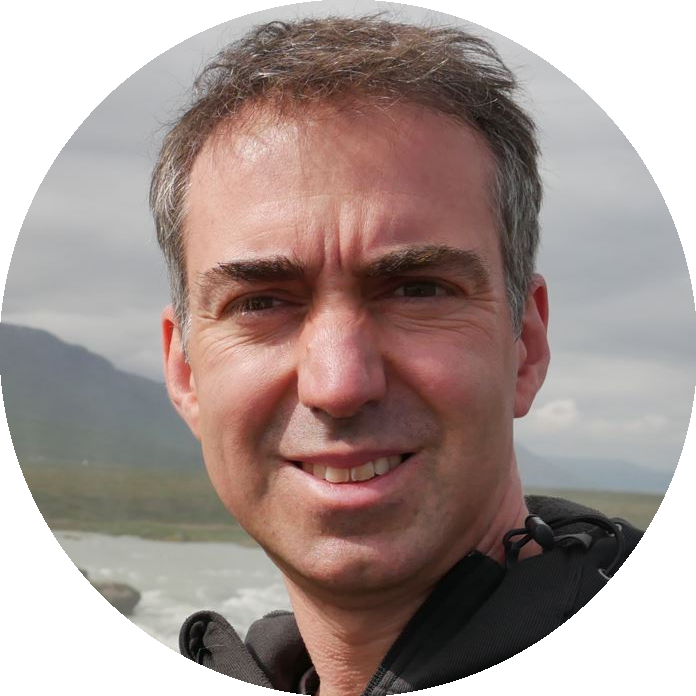Research · Editorial
Research empowering victims of human trafficking wins OU award

We are pleased to congratulate IET’s Dr Saraswati Dawadi and the OU’s Dr Margaret Ebubedike who have been voted the winner of The Open University’s People’s Choice Award.
In a drive to tackle some of today’s most significant societal challenges, The Open University (OU) has committed to focusing all of its research around three core pillars: sustainability, inequality and living well.
To launch the new focus areas, the winner of the People’s Choice Award is research into empowering victims of human trafficking, conducted by Dr Saraswati Dawadi, research associate at the OU’s Institute of Educational Technology (IET), and Dr Margaret Edubedike, researcher associate in the OU’s Faculty of Wellbeing, Education and Language Studies.
The shortlisted projects have been explored in a new docuseries led by British model and environmentalist, Lily Cole. Through the docuseries, Cole invites the viewer to learn more about the innovative projects in conversation with The Open University academics leading the research. Released today (Tuesday 11th October 2022), each of the four short films asks a vital question impacting our society:
- How can we help sex-trafficking survivors rebuild their lives?
Dr Saraswati Dawadi and Dr Margaret Ebubedike have been researching ways to empower survivors of human trafficking with inclusive participatory methods. In the following video, Saraswati draws upon her upbringing in Nepal to explain her and her fellow OU researchers’ mission to improve the lives of human trafficking survivors.
- How can we improve the education system in India?
Also shortlisted for the award from IET, Dr Simon Cross, Professor Freda Wolfenden and Dr Lina Adinolfi have led research into addressing a critical skills gap in India’s teaching profession by empowering the country’s teachers to earn digital badges for completing free online courses. The work of the project team has also aided educators by supporting them track and demonstrate evidence for their commitment to teacher professional development (TPD).
- How does researching water on the Moon improve sustainability of resources and health on Earth?
Among research shortlisted from elsewhere at the OU, Professor Mahesh Anand, Dr Simeon Barber, and Dr Simon Sheridan’s research is pioneering work to extract water from lunar rock, paving the way for humans living on the Moon. The research is also exploring ways that the technology could provide clean drinking water in drought areas and extract water and rare metals from mine waste.
- How can we “age well” and what does that really mean?
The fourth nominee shortlisted is Dr Jitka Vseteckova, who has helped more than 30,000 people to learn the theories and practices essential to living longer and healthier lives. These pillars for good health and longevity; nutrition, hydration, physical activity, and cognitive and social stimulation have been shared through more than 80 public talks and free OpenLearn online learning resources.
The full docuseries can be viewed here.
Empowering survivors of human trafficking
Dr Saraswati Dawadi's research is having a direct impact in empowering marginalised communities in Nepal and Nigeria, using participatory methods and technology-enhanced learning approaches to support the development of skills through training.
Discussing the award, Dr Saraswati Dawadi commented:
“After devoting five years of my working life to how we can help trafficking survivors rebuild their lives, it’s an honour to have the importance of these types of projects recognised by the UK public.”
“The research we are doing is opening our eyes to the needs of girls in marginalised communities. It’s about empowering victims of sex trafficking by giving them the support and skills to help themselves and others.”
Dr Margaret Ebubedike, who also researchers improving the lives of trafficking survivors, added:
“The work I do is so close to my heart and my heritage. Having led rural development projects in the Lake Chad country region, I’ve experienced first-hand how critical empowering girls and young women is in these kinds of communities."
“The human trafficking project is fostering creative spaces for the girls to express themselves, to articulate their daily challenges and concerns about their future aspirations, and to reconstruct their identity in ways which empower them to reintegrate and make meaningful contributions to their communities.
“We hope to not only help these young girls and women in the short term, but to create long lasting, sustainable change.”
On her involvement in the project, Lily Cole commented:
“I was fascinated to learn about the research underway at The Open University. I knew of the OU as a place for online learning, but hadn’t realised how much else it has going on in terms of really exciting academic research."
“The researchers’ passion for their respective areas really shone through when I spoke to them: whether it was helping trafficking victims integrate back into society, discovering how we can live longer, improving India’s education system or how researching water from the Moon could improve sustainability here on Earth.
“Given the different social and environmental crises we collectively face, academic institutions and universities like the OU are in a powerful position to help us find and develop innovative solutions."
Professor Kevin Shakesheff, Pro-Vice-Chancellor of Research at The Open University, concluded:
“Our social mission to improve lives through our research is front and centre of all that we do. These exciting projects truly have the power to impact positive change on society and around the world."
“We’re excited to have found a creative way to showcase just a few examples of the important, cutting-edge research underway by the many talented academics we have at The Open University. It was brilliant to see the inspirational human trafficking research crowned winner of the recent People’s Choice Award.”
More information on the research projects and courses at The Open University can be found here.
People
-
PS
Professor Kevin Shakesheff
-
LC
Lily Cole

